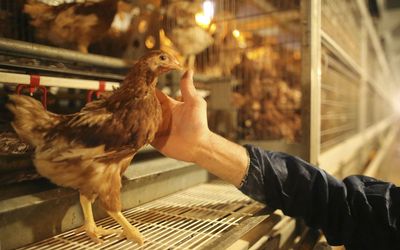Agoa sword will keep hanging above SA
by Virusha Subban and Yonatan Sher,
2016-03-29 05:38:43.0
THE African Growth and Opportunity Act (Agoa) is a nonreciprocal trade preference programme that provides eligible sub-Saharan African countries with duty-free access for certain exports into the US market. The purpose of Agoa is to expand US trade and investment with sub-Saharan Africa, stimulate economic growth, and encourage economic integration.
Agoa’s greatest beneficiaries have been petroleum-exporting African states. SA is Agoa’s most substantial nonpetroleum exporter beneficiary, especially in the automobile and perishable food industries.
Agoa is a unilateral decision by the US to offer new terms of trade to African countries. Improved market access into the US for African products fully relies on unilateral US law.
Last year, when Agoa’s authorisation was set to expire in September, US legislators debated whether to include SA in the list of beneficiary countries in the renewed Agoa. The two main issues centred on whether SA was economically too advanced to be considered a deserving beneficiary, and concerns over SA’s compliance with Agoa’s eligibility requirements. The second concern took centre stage in the political battle between the US poultry lobby and the SA Poultry Association. There has been a long-running complaint by US poultry exporters about South African import barriers (up to 100%) on US poultry exports, especially bone-in chicken. SA has argued that the US exporters were trying to dump their chicken parts at less than the cost of production, violating international antidumping agreements and justifying the imposed antidumping tariffs.
US exporters argued they valued their prices differently and were not technically dumping. As Agoa is not a negotiated agreement and is at the mercy of the US congress, special-interest poultry industry groups wielded the renewability of Agoa as a negotiating chip to compel SA to remove the tariffs. Agoa was renewed for 10 years at the end of last year, and SA managed to keep its position as a beneficiary, but special provisions singling out SA were included in the new legislation that compelled a mandatory formal review of SA’s compliance with Agoa’s eligibility provisions.
The renewed Agoa also featured stricter eligibility requirements and concomitant processes and reviews, as well as the possibility of targeted sanctions for noncompliance.
In January, US President Barack Obama formally suspended SA’s Agoa preferences for agricultural exports. The legislation afforded a notice period before suspension took effect, allowing SA a grace period to redeem itself before the March 15 deadline.
SA agreed an annual quota of US bone-in chicken could be imported into the country without paying antidumping duties. At the beginning of the month, US chicken imports hit South African store shelves for the first time in 15 years. On March 15, Obama announced SA had met the benchmarks set to allow the import and sale of US poultry and the country would not be suspended from any Agoa preferential treatment.
SA is far from being on terra firma as far as Agoa is concerned. The renewed Agoa was amended to allow for increased flexibility in dealing with beneficiary states whose eligibility is in question. In addition to an annual review and request for public comment on whether the beneficiary complies with the eligibility criteria, the US president may now initiate "out-of-cycle" assessments on 60 days’ warning at any stage.
The country may have survived the out-of-cycle assessment regarding its poultry and meat imports, but its position on other outstanding issues is likely to be interrogated in the mandatory annual reviews, or even trigger further out-of-cycle assessments, and ultimately, scuttle its Agoa privileges.
For example, if SA pursues its intention of restricting foreign commercial interest in the private security industry, or reforming its intellectual property laws, it is certain to come under further review.
This illustrates the need for the Southern African Customs Union, and SA in particular, to conclude a reciprocal trade agreement with the US instead of relying on unilateral treaties such as Agoa. SA needs assurance that its access to the US market is not perpetually at risk, and that any trade disagreements will be dealt with within the framework of a contractual arrangement, and that they are then resolved through World Trade Organisation rules and procedures.
Thankfully, the renewed Agoa emphasises the negotiation of trade and investment framework agreements with African countries. It requires the Office of the US Trade Representative to report on plans for negotiating free trade agreements within a year of Agoa being reauthorised, and to notify US congress of any African country that has expressed an interest in such agreements.
It also provides for the evaluation of the "viability and progress" of interested African countries towards entering into such agreements.
Hopefully, this will be the incentive SA, the union and the US need to get back around the negotiating table and conclude reciprocal, mutually beneficial trade agreements, which are now more crucial than ever.
• Subban is a partner specialising in customs, excise and international trade, and Sher a candidate attorney, at Bowman Gilfillan Africa Group

Picture: REUTERS/STEPHANE MAHE
THE African Growth and Opportunity Act (Agoa) is a nonreciprocal trade preference programme that provides eligible sub-Saharan African countries with duty-free access for certain exports into the US market. The purpose of Agoa is to expand US trade and investment with sub-Saharan Africa, stimulate economic growth, and encourage economic integration.
Agoa’s greatest beneficiaries have been petroleum-exporting African states. SA is Agoa’s most substantial nonpetroleum exporter beneficiary, especially in the automobile and perishable food industries.
Agoa is a unilateral decision by the US to offer new terms of trade to African countries. Improved market access into the US for African products fully relies on unilateral US law.
Last year, when Agoa’s authorisation was set to expire in September, US legislators debated whether to include SA in the list of beneficiary countries in the renewed Agoa. The two main issues centred on whether SA was economically too advanced to be considered a deserving beneficiary, and concerns over SA’s compliance with Agoa’s eligibility requirements. The second concern took centre stage in the political battle between the US poultry lobby and the SA Poultry Association. There has been a long-running complaint by US poultry exporters about South African import barriers (up to 100%) on US poultry exports, especially bone-in chicken. SA has argued that the US exporters were trying to dump their chicken parts at less than the cost of production, violating international antidumping agreements and justifying the imposed antidumping tariffs.
US exporters argued they valued their prices differently and were not technically dumping. As Agoa is not a negotiated agreement and is at the mercy of the US congress, special-interest poultry industry groups wielded the renewability of Agoa as a negotiating chip to compel SA to remove the tariffs. Agoa was renewed for 10 years at the end of last year, and SA managed to keep its position as a beneficiary, but special provisions singling out SA were included in the new legislation that compelled a mandatory formal review of SA’s compliance with Agoa’s eligibility provisions.
The renewed Agoa also featured stricter eligibility requirements and concomitant processes and reviews, as well as the possibility of targeted sanctions for noncompliance.
In January, US President Barack Obama formally suspended SA’s Agoa preferences for agricultural exports. The legislation afforded a notice period before suspension took effect, allowing SA a grace period to redeem itself before the March 15 deadline.
SA agreed an annual quota of US bone-in chicken could be imported into the country without paying antidumping duties. At the beginning of the month, US chicken imports hit South African store shelves for the first time in 15 years. On March 15, Obama announced SA had met the benchmarks set to allow the import and sale of US poultry and the country would not be suspended from any Agoa preferential treatment.
SA is far from being on terra firma as far as Agoa is concerned. The renewed Agoa was amended to allow for increased flexibility in dealing with beneficiary states whose eligibility is in question. In addition to an annual review and request for public comment on whether the beneficiary complies with the eligibility criteria, the US president may now initiate "out-of-cycle" assessments on 60 days’ warning at any stage.
The country may have survived the out-of-cycle assessment regarding its poultry and meat imports, but its position on other outstanding issues is likely to be interrogated in the mandatory annual reviews, or even trigger further out-of-cycle assessments, and ultimately, scuttle its Agoa privileges.
For example, if SA pursues its intention of restricting foreign commercial interest in the private security industry, or reforming its intellectual property laws, it is certain to come under further review.
This illustrates the need for the Southern African Customs Union, and SA in particular, to conclude a reciprocal trade agreement with the US instead of relying on unilateral treaties such as Agoa. SA needs assurance that its access to the US market is not perpetually at risk, and that any trade disagreements will be dealt with within the framework of a contractual arrangement, and that they are then resolved through World Trade Organisation rules and procedures.
Thankfully, the renewed Agoa emphasises the negotiation of trade and investment framework agreements with African countries. It requires the Office of the US Trade Representative to report on plans for negotiating free trade agreements within a year of Agoa being reauthorised, and to notify US congress of any African country that has expressed an interest in such agreements.
It also provides for the evaluation of the "viability and progress" of interested African countries towards entering into such agreements.
Hopefully, this will be the incentive SA, the union and the US need to get back around the negotiating table and conclude reciprocal, mutually beneficial trade agreements, which are now more crucial than ever.
• Subban is a partner specialising in customs, excise and international trade, and Sher a candidate attorney, at Bowman Gilfillan Africa Group
























Change: 1.37%
Change: 1.32%
Change: 2.91%
Change: 0.45%
Change: 3.09%
Data supplied by Profile Data
Change: 1.59%
Change: 0.47%
Change: 1.37%
Change: 0.00%
Change: 0.44%
Data supplied by Profile Data
Change: 0.23%
Change: -0.03%
Change: 0.06%
Change: 0.30%
Change: 0.00%
Data supplied by Profile Data
Change: 0.25%
Change: 0.31%
Change: 0.13%
Change: 0.36%
Change: -0.66%
Data supplied by Profile Data